PPT-CMPT 225 Memory and C++ Pointers
Author : ginocrossed | Published Date : 2020-06-24
Outline C objects and memory C primitive types and memory Note primitive types int long float double char January 2010 Greg Mori 2 Dynamic Memory Example from
Presentation Embed Code
Download Presentation
Download Presentation The PPT/PDF document "CMPT 225 Memory and C++ Pointers" is the property of its rightful owner. Permission is granted to download and print the materials on this website for personal, non-commercial use only, and to display it on your personal computer provided you do not modify the materials and that you retain all copyright notices contained in the materials. By downloading content from our website, you accept the terms of this agreement.
CMPT 225 Memory and C++ Pointers: Transcript
Download Rules Of Document
"CMPT 225 Memory and C++ Pointers"The content belongs to its owner. You may download and print it for personal use, without modification, and keep all copyright notices. By downloading, you agree to these terms.
Related Documents

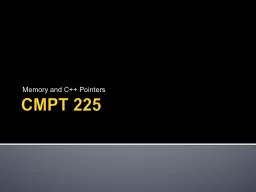

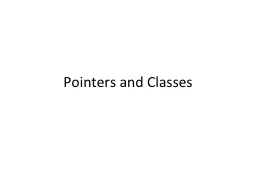

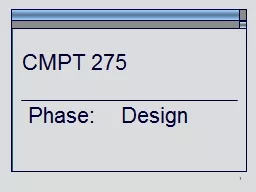
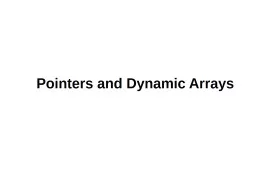


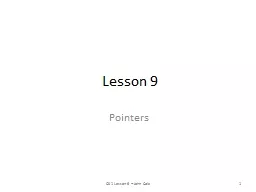
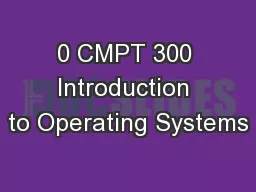
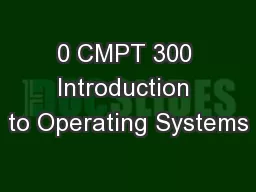

![[PDF]-Understanding Pointers in C C++: Pointers in all its forms: Fully working Examples](https://thumbs.docslides.com/987844/pdf-understanding-pointers-in-c-c-pointers-in-all-its-forms-fully-working-examples-and-applications-of-pointers-english-edition.jpg)
